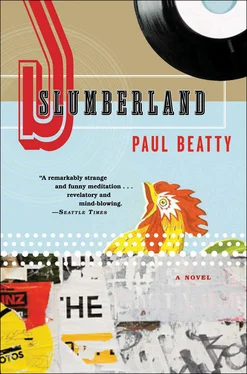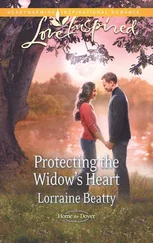At the Nollendorfplatz U-bahn station we catch ourselves staring blankly at a marble plaque memorializing the homosexual victims of National Socialism. People whom the inscription described as having their bodies beaten to death ( totgeschlagen ) and their stories silenced to death ( totgeschwiegen ).
“What did you do last night?”
It’s an odd question. One that is usually only asked by a best friend after a drag on a borrowed cigarette or the pulling of a strange hair from a familiar shoulder. I’m thankful for it, though. She doesn’t want to dwell in the not-so-distant past, and neither do I. “Nothing. What about you?”
“Nothing.”
“What about the day before yesterday?” she asks, pulling in close enough to squeeze the air from my down jacket.
“The day before yesterday?” I say, reaching behind my back and breaking her grip. “I was really busy the day before yesterday.”
She’s hurt that I refuse to share, but the day before yesterday is too personal. The day before yesterday was the most important day of my life.
On the elevated tracks above us her train brakes to a halt. She’s trying to hold my gaze; however, my attention is focused on a place I can’t see but know is there. A place two blocks and a left turn behind her — the Slumberland bar. My patronizing good-bye kiss on the forehead is quickly countered with a kiss of her own. A lingering smack on the lips that gives me a glimpse into what could be our future, a long stretch of day after tomorrows that would be soft, impulsive, slightly salty, and an inch and a half taller than me. Bing-bong . The two-note electronic chime sounds, the pneumatic doors hiss to a close, and in a sense we’ve both missed our trains.
Not getting the anticipated response from me, the receptionist quickly folds her arms in disgust, her hands tucked tightly into her armpits. I want to ask her to do it again. Not kiss me, but fold her arms. The sandpapery sound of the linen sleeves of her lab coat rubbing together makes the tip of my penis itch. It’s time to say good-bye. I reach out to lift the name tag poorly fastened to the receptionist’s lapel. It reads, Empfangsdame , German for receptionist.
I begin to backpedal, expecting her figure to recede into the night. It doesn’t. Her lab coat is too bright. She stands there like a stubborn ghost of my satyric past, present and future refusing to disappear.
It’s a slow Monday night; the Slumberland is gloomy and quiet. Only the jukebox’s flickering lights and a Nigerian trying to impress a blonde with his Zippo lighter tricks punctuate the musty stillness. I order a wheat beer, then insert some money into the jukebox. I punch in 4701, “In a Sentimental Mood.” Duke Ellington’s languorous legato soft-shoes into the bar and, as advertised, puts me in a sentimental mood about the day before yesterday.
Most languages have a word for the day before yesterday. Anteayer in Spanish. Vorgestern in German. There is no word for it in English. It’s a language that tries to keep the past simple and perfect, free of the subjunctive blurring of memory and mood. I take out a pen, tapping the end impatiently on a bar napkin as I try to think of a English word for “the day before yesterday.”
I consider myself to be a political-linguistic refugee, come to Germany seeking asylum in a country where I don’t have to hear people say “nonplussed” when they mean “nonchalant” or have to listen to a military spokesperson euphemistically refer to a helicopter’s crashing into a mountainside as a “hard landing,” and I can’t begin to explain how liberating it is to live in a place where I can go through an autumn of Sundays without once having to hear someone say, “The only thing the prevent defense does is prevent you from winning.” Listening to America these days is like listening to the fallen King Lear using his royal gibberish to turn field mice and shadows into real enemies. America is always composing empty phrases like “keeping it real,” “intelligent design,” “hip-hop generation,” and “first responders” as a way to disguise the emptiness and the mundanity.
Ironically, though the sound of American rhetoric is one of the reasons I left, it’s the last remaining tie I have to the country of my birth. The only person back home I correspond with is Cutter Pinchbeck III, senior editor for the Kensington-Merriwether Dictionary of Standard American English . Our relationship is contentious, and like some exiled word revolutionary I try to improve the linguistic repression from afar. To date I’ve submitted four words for inclusion in the next edition: etymolophile, Corfunian, hiphopera , and phonographic memory . I like my words; they’re self-explanatory and, to my mind, much needed. Who’d believe that English is the only Indo-European language without an adjective to describe the inhabitants of the island of Corfu? Cutter Pinchbeck says we don’t need Corfunian . In his priggish rejection letters he states that the people of Corfu are called Greeks, and that an etymolophile wouldn’t be a lover of words, but a lover of the origin of words. He patronizingly says that hiphopera almost merited a lemma as an innovative, confluent melding of high and low culture; however, it didn’t possess the “straight gully, niggerish perspicuity of this year’s new entries, e.g., badonkadonk, bling, bootylicious, dead presidents, hoodrat, peeps , and swol ,” just to name a few slang ephemerals. And despite my having enclosed signed affidavits from my mother and a video of me, age twelve, winning twenty-five thousand dollars on Name That Tune , Cutter Pinchbeck doesn’t believe that I, nor anyone of the hundred billion people who’ve trodden on earth in the past fifty thousand years, has ever had a phonographic memory — but I do. I remember everything I’ve ever heard. Every dropped nickel, raindrop drip-drop, sneaker squeak, and sheep bleat. Every jump rope chant, Miss Mary Mack Mack hand clap, and “eenie meanie chili beanie oop bop-bop bellini” method for choosing who’s it. I remember every sappy R&B radio lyric and distorted Hendrix riff. Every Itzhak Perlman pluck and squishy backseat contorted make-out session. I can still hear every Hey you, You the man, and John Philip Sousa euphonium toot and every tree rustle and streetcorner hustle. I remember every sound I’ve ever heard. It’s like my entire life is a song I can’t get out of my head.
“Ow.” The Nigerian has burned himself. He’s shaking his hand wildly and sucking air through his teeth. His date laughs, seizes his hand, and licks and nuzzles his seared fingers.
The jukebox ballad ends with a note that Ellington lays down with the gentleness of a child setting a wounded bird into a shoe-box lined with tissue paper. A series of English words for “the day before yesterday” dies in the back of my throat— penultidiem. . prepretoday. . yonyesterday . . — and like an unwitting Tourette’s Syndrome utterance, a word for “the day before yesterday” flies from my mouth. “Retrothence!” The blonde and the Nigerian give me a strange look. I’m going to send that to Cutter Pinchbeck III at Kensington-Merriwether. Retrothence will look awfully nice on page 1147 of the Fourth College Edition, nestled between retrospective and retroussé .
“You still have some songs left.”
The Nigerian is standing next to the jukebox.
“Put in 1007. You can play anything you want after that.”
Rock ’n’ roll saunters into the room. Overdubbed guitar riffs that don’t come off as gimmicky, drums driving the song with the tough staccato love of a caring drill sergeant, and the bass, the bass is above the fray, suspended above the strings, synthesizers and percussion, brimming with a cocksure confidence, always threatening to show off but never doing it.
Читать дальше












